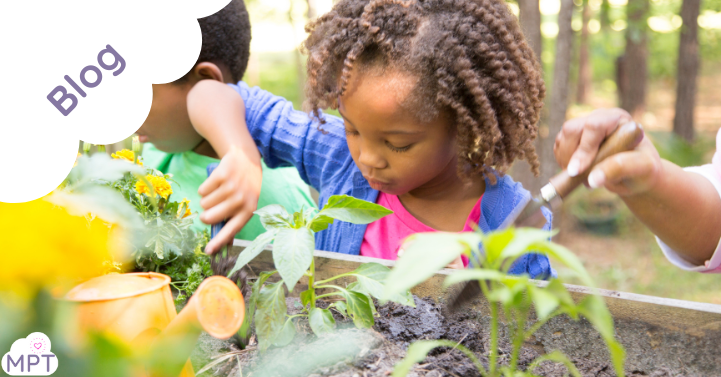100 Benefits of Outdoor Learning with the Muddy Puddle Teacher Approach
Outdoor learning offers a wealth of advantages for children, and the Muddy Puddle Teacher approach amplifies these benefits by integrating natural materials, promoting mental well-being, and encouraging physical activity. Here are 100 benefits of outdoor learning, aligned with the principles of the Muddy Puddle Teacher methodology.
Here are 100 Benefits of Outdoor Learning :
🌿 Academic and Cognitive Development
-
Enhances concentration and focus.
-
Improves memory retention through hands-on experiences.
-
Stimulates curiosity and inquiry-based learning.
-
Encourages problem-solving skills in real-world contexts.
-
Supports cross-curricular connections.
-
Facilitates understanding of abstract concepts through tangible experiences.
-
Promotes language development via descriptive discussions.
-
Boosts creativity and imagination.
-
Enhances observational skills.
-
Develops critical thinking abilities.
🧠 Mental Health and Emotional Well-being
-
Reduces stress and anxiety levels.
-
Improves mood and emotional regulation.
-
Increases self-esteem and confidence.
-
Provides a calming environment conducive to mindfulness.
-
Encourages resilience through overcoming outdoor challenges.
-
Fosters a sense of freedom and autonomy.
-
Supports emotional expression through creative activities.
-
Promotes a positive attitude towards learning.
-
Enhances motivation and engagement.
-
Offers therapeutic benefits through nature immersion.Muddy Puddle Teacher
💪 Physical Health and Development
-
Encourages regular physical activity.
-
Improves gross motor skills through movement.
-
Develops fine motor skills via natural material manipulation.
-
Boosts cardiovascular health.
-
Strengthens muscles and coordination.
-
Enhances balance and spatial awareness.
-
Promotes healthy growth and development.
-
Supports sensory integration.
-
Provides exposure to sunlight, aiding vitamin D synthesis.
-
Improves sleep patterns through physical exertion.
🤝 Social Skills and Teamwork
-
Encourages collaboration and cooperative learning.
-
Develops communication skills.
-
Fosters empathy and understanding among peers.
-
Teaches conflict resolution strategies.
-
Builds trust through group activities.
-
Promotes leadership and responsibility.
-
Enhances listening and turn-taking abilities.
-
Supports inclusive play and learning.
-
Strengthens peer relationships.
-
Encourages respect for others’ ideas and contributions.
🌱 Environmental Awareness and Stewardship
-
Cultivates a connection with nature.
-
Teaches sustainability and conservation principles.
-
Encourages care for living organisms.
-
Promotes understanding of ecosystems and biodiversity.
-
Highlights the importance of environmental protection.
-
Develops awareness of seasonal changes.
-
Inspires eco-friendly behaviours.
-
Supports outdoor ethics and responsibility.
-
Enhances knowledge of local flora and fauna.
-
Fosters a lifelong appreciation for the natural world.
🎨 Creative and Expressive Development
-
Stimulates artistic expression using natural materials.
-
Encourages imaginative play.
-
Supports storytelling and narrative skills.
-
Develops musical abilities through natural sounds.
-
Inspires innovative thinking.
-
Provides opportunities for drama and role-play.
-
Enhances design and construction skills.
-
Promotes cultural expression through outdoor activities.
-
Encourages experimentation with textures and forms.
-
Supports the development of personal style and preferences.
🧭 Independence and Life Skills
-
Teaches risk assessment and management.
-
Encourages decision-making and problem-solving.
-
Develops planning and organizational skills.
-
Fosters self-reliance and initiative.
-
Enhances adaptability and flexibility.
-
Promotes time management through activity planning.
-
Supports goal setting and achievement.
-
Teaches practical skills like tying knots or building shelters.
-
Encourages responsibility for personal belongings and tools.
-
Develops perseverance and determination.
📚 Curriculum Integration
-
Reinforces literacy through nature-based reading and writing.
-
Applies mathematical concepts in real-life contexts.
-
Enhances scientific understanding through observation and experimentation.
-
Supports geography learning via exploration of local environments.
-
Incorporates history through storytelling and cultural activities.
-
Facilitates physical education through active outdoor games.
-
Integrates art and design using natural resources.
-
Promotes music education through environmental sounds.
-
Supports computing skills via data collection and analysis.
-
Encourages language learning through environmental vocabulary.
🏫 School and Community Engagement
-
Strengthens school-community partnerships.
-
Encourages parental involvement in outdoor activities.
-
Promotes community service through environmental projects.
-
Enhances school identity and culture.
-
Supports local heritage and cultural education.
-
Provides opportunities for intergenerational learning.
-
Encourages collaboration with local organizations.
-
Fosters a sense of belonging and pride in the school.
-
Promotes positive school behavior and discipline.
-
Supports fundraising and awareness campaigns.
🌈 Inclusivity and Accessibility
-
Caters to diverse learning styles and needs.
-
Provides equitable learning opportunities.
-
Supports learners with special educational needs.
-
Encourages cultural inclusivity and understanding.
-
Promotes gender equality through shared activities.
-
Facilitates language development for EAL learners.
-
Offers accessible learning environments.
-
Supports emotional and behavioral development.
-
Encourages participation from all socioeconomic backgrounds.
-
Fosters a sense of equality and respect among learners.
By embracing the Muddy Puddle Teacher approach, educators can unlock these benefits, creating enriching, inclusive, and dynamic learning experiences that extend beyond the classroom walls.


